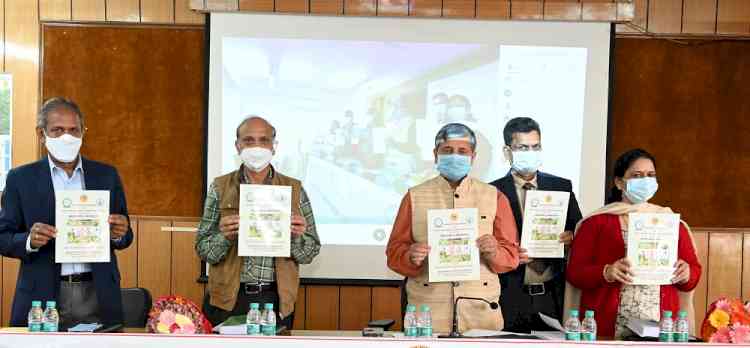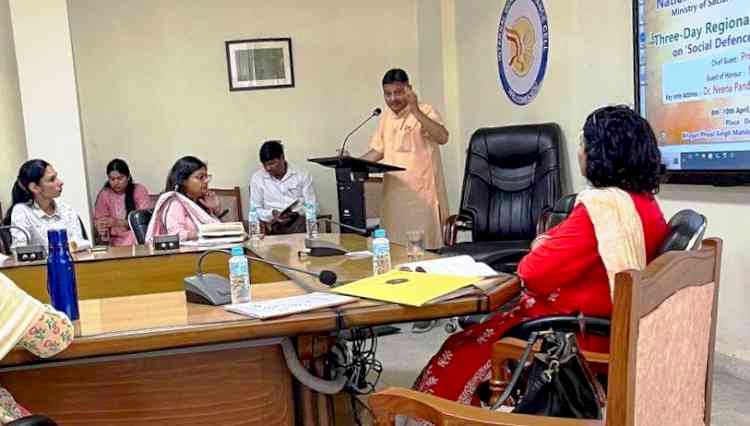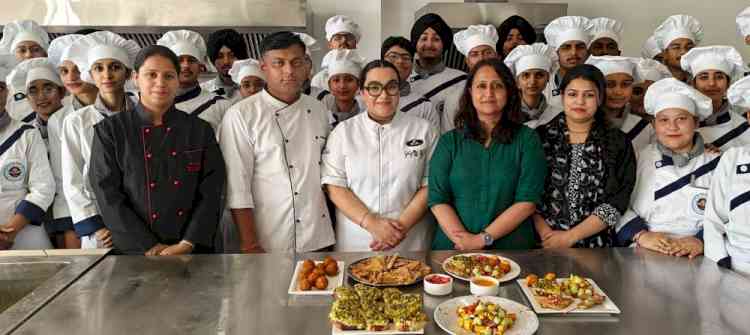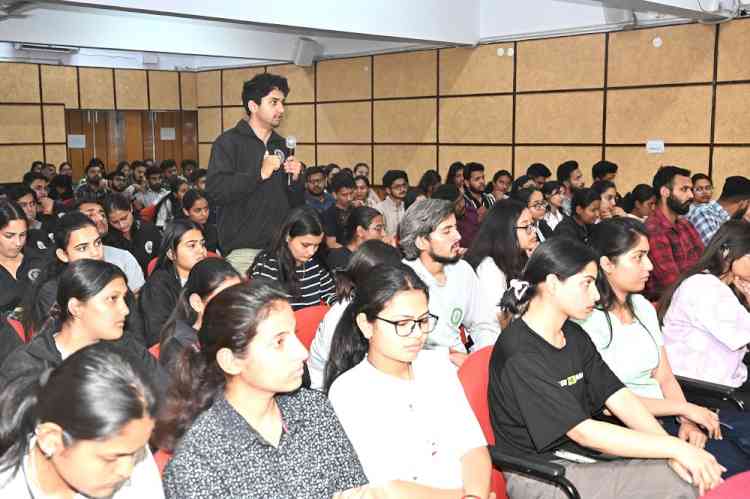Need for effective regulations for imported planting material: Dr Chakrabarty
Two-day symposium on plant health management begins at UHF Nauni

Nauni (Himachal Pradesh): There is a need for proper management of diseases and effective regulations for imported planting material to check the entry of quarantine pests. This was stated by Dr. PK Chakrabarty, Member Agricultural Scientist Research Board during the inaugural session of the two-day National Symposium on ‘Plant Health Management Beyond 2020’ which began today at the Dr. YS Parmar University of Horticulture and Forestry (UHF), Nauni. The symposium is being organized by the Department of Plant Pathology in association with the Himalayan Phytopathological Society as part of the Golden Jubilee celebrations of Statehood of Himachal Pradesh and 56 years of the creation of the Department of Plant Pathology.
The event was held in online and offline mode with strict adherence to COVID 19 guidelines. Eminent scientists from more than 20 reputed institutes of the ICAR and Central Universities will be delivering their lectures on smart agriculture technologies during the event.
Dr. PK Chakrabarty, who was the Chief Guest during the event stressed on the need for recommended use of pesticides in crops as per the label claims as the use of more than 85 percent of pesticides is without their registration in specific crops and it can adversely affect the exports of agricultural produce from India. He said that students must be taught the new molecular techniques so that interventions of molecular techniques can be used to avoid the use of chemical pesticides. He specifically talked about targeting susceptibility genes in plants to make it difficult for pathogens to cause the diseases.
Dr. Parvinder Kaushal, Vice-Chancellor lauded the role of the Himalayan Phytopathological Society and said that the scientific acumen and technology of the Plant Pathology department have helped the farming community of the state to combat serious diseases in fruits, vegetables and ornamental crops especially scab and premature leaf fall in apple which could have severely affected the state’s economy. Dr. Kaushal stressed on the need to adopt precision agriculture that makes the use of information technology to achieve precision management with the use of new technologies like nanotechnology, IT and Artificial Intelligence, etc. He was of the view that the production of safe and quality food with an emphasis on eco-friendly methods of disease management was a major challenge in Indian agriculture. He asked the scientists to be vigilant on emerging disease problems in horticultural and forestry crops and provide ready-to-use effective technologies.
Earlier Dr. HR Gautam, Head of Department of Plant Pathology and President of the society welcomed the participants. He was of the view that the Agriculture sector needs an infusion of new technologies which will enable this primary sector to move to the next level of farm productivity and profitability. He said that innovations and new technologies open new avenues across different fields. Dr. Gautam said that while the first Green revolution came with genetic modification, precision agriculture, which consists of the precision application of inputs, when and where these are needed, has become the third wave of the modern agricultural revolution. There is a need to adopt next-generation technologies to achieve higher productivity of crops using less energy, fertilizer and pesticide while lowering levels of Greenhouse gases and coping with climate change. India needs the next green revolution and for that, we have to go for a technology revolution.
Several awards were also conferred for contributions in the field of plant pathology. Dr. Pramod Prasad, Scientist, Regional Station of ICAR IIWBR was bestowed with the Young Scientist Award for his research efforts in wheat. Dr. RL Munjal Best PhD Thesis Award was awarded to Dr. Ashish Janraoji Warghane, Mandsaur University for his work on citrus during his doctorate. The innovative Farmer Award was bagged by Parma Nand, a progressive grower from village Chammo in Kasauli. Commendations were given to progressive farmers Rajesh Thakur, Rohit Kaushik, Satish Kumar Gill, Tejasvi Dogra and Sunit Kumari. Organizing Secretary Dr. Narender Bharat delivered the vote of thanks and read out the citations for the awardees. The statutory officers, faculty and students of plant pathology discipline attended the symposium.


 cityairnews
cityairnews 








